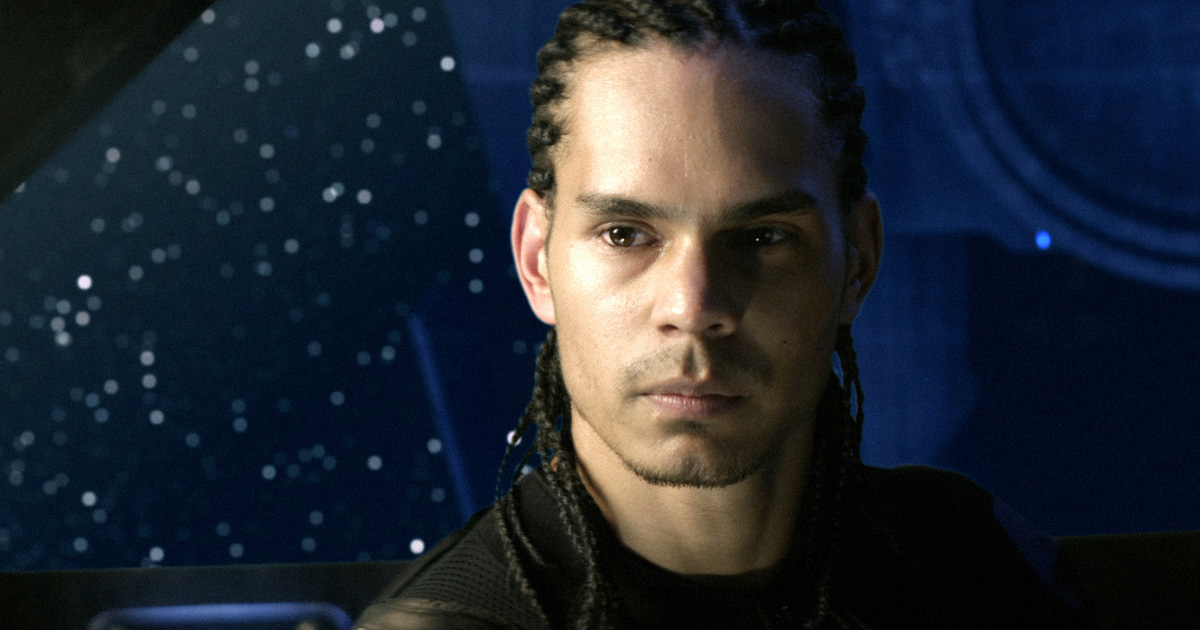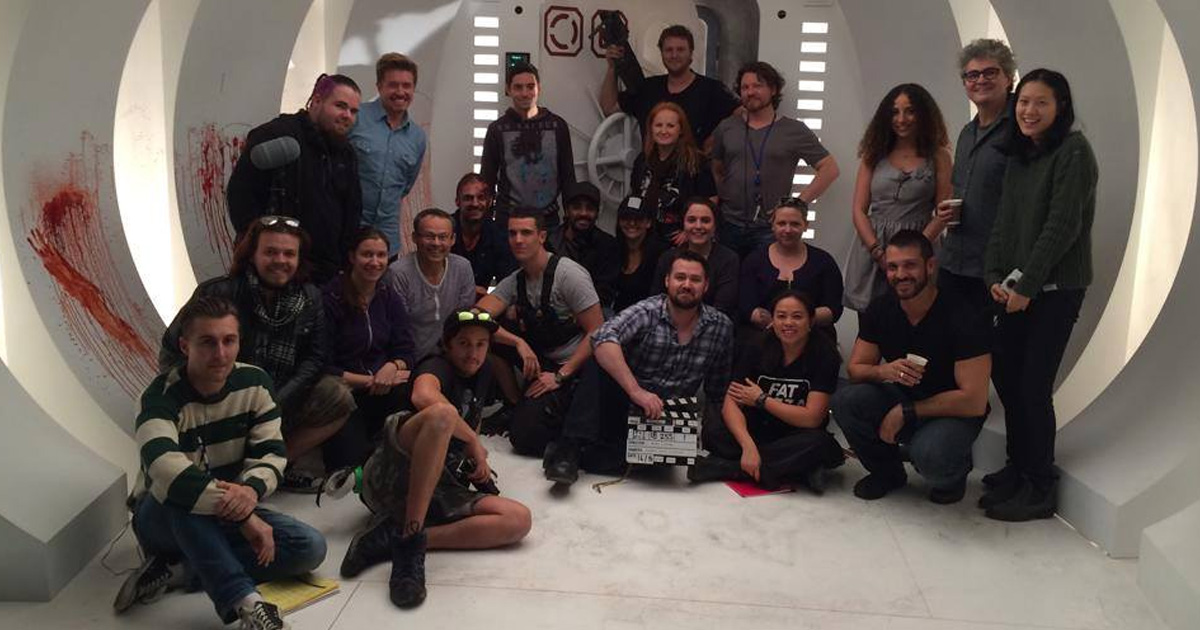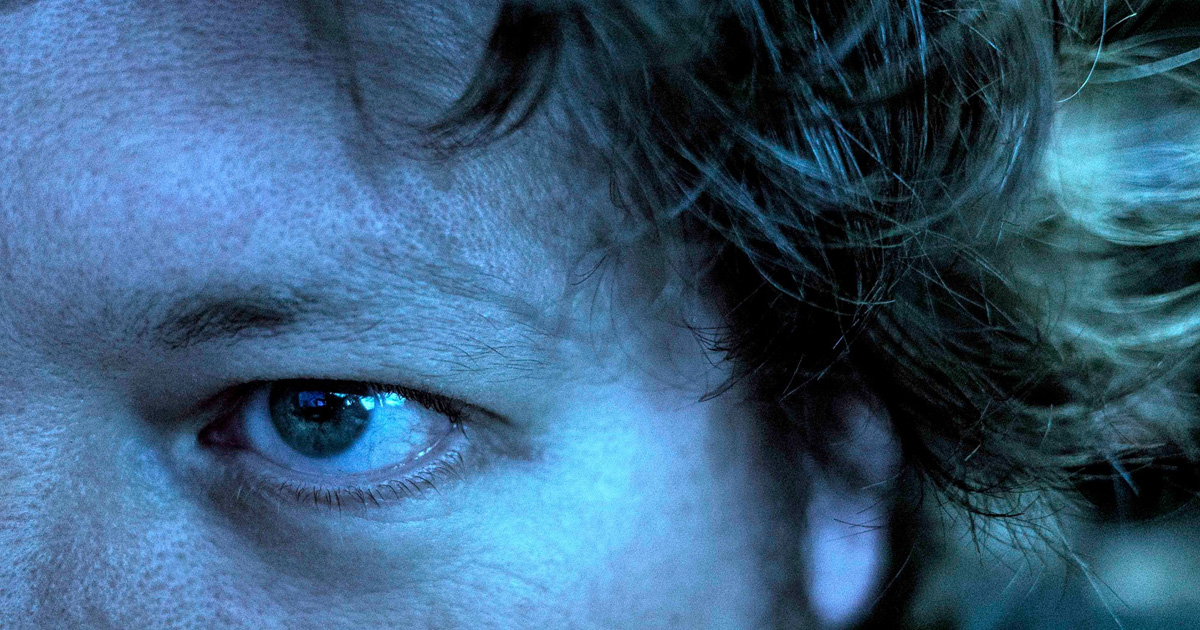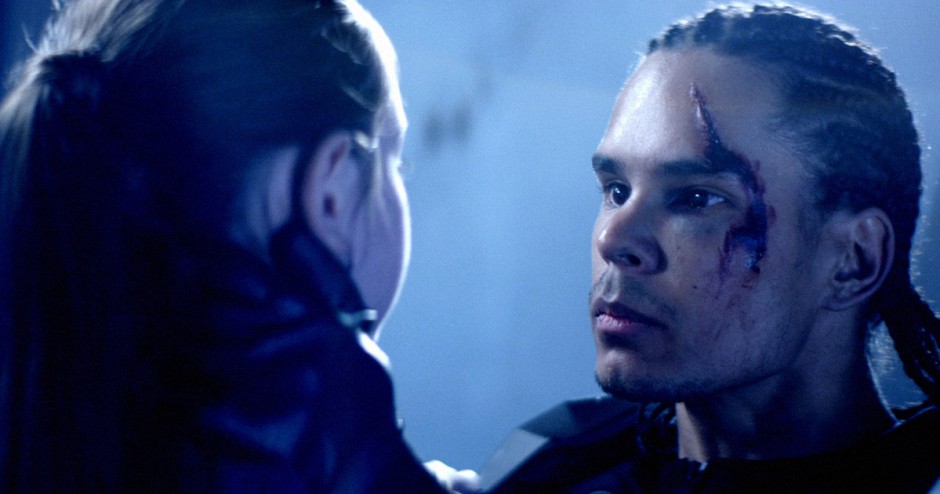So You Want To Score Horror Movies? Meet Film Composer Paul Dawkins
By christina · On December 11, 2015Paul Dawkins is a film composer, engineer and musician who started working on audio recordings at the age of thirteen and has since crafted a fascinating career that spans writing, performing, producing and touring his own music, engineering records and composing film scores for the likes of Aussie horror flick The Tunnel and new award-winning web series Airlock. He shares a few stories and tips for aspiring composers and audiophiles.
What’s coming up next that you’re working on?
Well, I have some corporate type score work in the new year – which is more common than you might think – and around 3 shorts and a feature to do. Of course, until you’ve actually started the score, you never really know what’s going to happen. For all I know, by the time you read this I may be doing a rush job.
How did you get into engineering, producing or writing scores?
Great question, because I have done – and still do – all three. Engineering was my audio professional start, apprenticing at Giant Studios in the early 90s in Balmain, NSW. To be honest, there was a family connection there, but I had a genuine love for audio, and had worked on recordings since I was around 12/13. I did a lot of corporate work, and some odd projects here and there (some truly odd indeed), however the first proper actually-released film score would have to have been 2010’s The Tunnel, which still remains a high watermark for me.
What was your first job and how long did it take you to get into doing what you do now?
My first proper job was in fact as an assistant engineer. Or “go-for”, which is where the talented people want something, and you go-for it and get it to them … I had to do an enormous amount of work on my own to get to a point where I was comfortable presenting myself as a “proper” composer. This included scoring anything I could get my hands on. Sometimes you just grab a movie which has a good scene with no music, and score it for no reason. I did a lot of that. And every time, you learn something new.

Did you have a lightbulb moment where you knew this is what you wanted to do?
Absolutely. The moment I heard the music of John Carpenter when I was a kid, that’s the moment. That’s when I knew I wanted to make something which transported me. Second one was Jerry Goldsmith, and in particular his score to the very underrated film “Explorers” in 1985. When I heard that in the theatre at a fairly young age, I wasn’t just hooked, it was just what I needed to do.
Who were the collaborators that made it most worthwhile along the way?
Film scoring doesn’t seem to have a lot of collaborators – it’s a solitary pursuit. However, you have to work with other people to get it done, make it happen. Producers Enzo Tedeschi (now a director too) and Julian Harvey have been instrumental – they took a chance on me for The Tunnel, and I have worked with them ever since either together, or separately. More than anyone, those guys got me to feel like the path had shifted to allow me a chance to show what I could do.
What were the biggest stumbling blocks you overcame?
The single biggest one is understanding negative feedback, not taking it personally when someone says they need you to completely redo something – or worse still, that the music you’ve sweated over is not going to be required after all. That said, I think the single biggest idea, most important moment, is to have that ability to lose your ego in the face of what you think at the time is a bad call. Turns out, most of the time, the call was right for the film. The creators of the film are the driving force, and you have to subsume your personality for that to a degree. Doesn’t mean saying yes to everything, but it does mean being reasonable and collaborative.

What do you think are the personal qualities needed for your job?
Patience, planning, and understanding. It’s actually really incredibly useful to understand the language of film. Also – the technical side cannot be underestimated. You need to know all the specs – the type of files you will get, what you need to put out, what you need to understand. People who ignore that aspect are probably going to be starting on the wrong foot, every time.
How much has the nature of your work changed over the years for you?
It’s become easier in terms of getting material back and forth, harder to a degree in terms of the work itself. Hell, I’d recommend people don’t come and try to get into film scoring as I don’t want the competition! Seriously though, it feels like more and more people every year are getting into the field, and I hope they all do well – but it is becoming crowded out there. A big reason I diversified.
What have been your proudest works that you’ve been a part of creating?
Without a doubt, The Tunnel score, the Airlock web series score, and an album I did some co-writes on for a cult Australian band by the name of Matt Finish called By Heart back in ’93.

Who have been your favourite artists to work with?
Well, it’s been a little solitary, but as a producer and general filmmaker, aside from Enzo and Julian, I’d say Matt Moffitt, Dragon, my own band Split Dogs, and my Dad (Peter Dawkins). Oh yeah, I did some work on the soundtrack for Heavenly Creatures for Peter Dasent, which was pretty cool. My little Peter Jackson connection. (Peter, TEXT ME 🙂
What’s the best way to approach a promoter you admire? What should you NEVER do?
In the context of film composing, that would be the producer. A lot of people email producers looking for score work. Keep it short. Keep it pertinent. Above all, know about what you’re asking about – research and want to do the movie.
In your opinion, what is the best first question an assistant should ask on their first day?
For film? “What is the deadline and what are the file formats?”
What is the worst thing you could do on your first day?
Try to show off. No need for it, in any area of the business. Listen, be receptive. Be awesome.
What are the three most important lessons you’ve learned so far?
1. Everyone has an opinion and each opinion will probably contradict all the others. This is normal.
2. Everything takes triple the amount of time you estimate, no matter how fast you are.
3. Nobody knows anything (this one is actually a well known rule by screenwriter William Goldman, and is so true).
What’s been your best “pinch yourself” moment so far?
A weird one: Singing and playing guitar for a song backed by some members of Dragon at a charity show filmed by Angela Bishop. Runner up: playing ring-in guitar and bass for a corporate Battle Of The Bands international final at the Rock and Roll Hall Of Fame in Cleveland, Ohio.
What’s been the most unintentionally hilarious day so far?
Well, it wasn’t so much hilarious as hideous – I got to see the final print of a short film I scored where the director had temped (put temporary commercial music) in there for me to “follow” and I found he had decided to form a “band”, and do the score himself. The score in question turned out to be simply a re-edited version of actual commercially available electronica from a very well known band’s score to a particular film … with little to no changes at all. The short in question was a finalist in that year’s Tropfest. No-one seemed to notice this, which amazes me to this day. The band’s name rhymed with Bemical Cothers.
What’s your ultimate goal, ultimate band, ultimate project? Has it already happened?
My ultimate goal is to write and direct a film which I can score as well. It’s all part of the connect nature of this. My original goal was simply to score a feature which would affect people – I feel I did that with The Tunnel. Ultimate band? I still haven’t made that killer rock album – always holding out hope there!
What’s the biggest misconception in your opinion about the industry you’re in?
That it’s somehow easy. That everything has to sound like Hans Zimmer. That it’s glamorous – it’s not. AT ALL. But it has moments of great joy among the wading through mud.
What’s the hardest part of the job, in your opinion?
The hours can be brutal. It’s also very hard sometimes to be told something you loved and sweated bullets over doesn’t work, but a the same time, that really is the gig. Also just having to produce a lot of material very very quickly.
What’s the best part of the job?
That moment watching a film you’ve scored on a big screen with an audience. If the final dub is mixed well, it’s an awesome feeling. The other one is simply knowing you’ve been part of something which may be around for a long time. Film doesn’t really have a shelf-life.
For a young aspiring Australian dreaming of a job like yours what would you recommend they do first?
I would recommend they do what I did: do “fake” scores to film scenes, practice, practice… never give up. Get a good sense of humility. Be great! Do something others are not doing – be available, be ready to help. Remember that it’s supposed to be wonderful. In the end, don’t really listen to anyone – if your gut says this is what you want to do, then you damn well do it.


